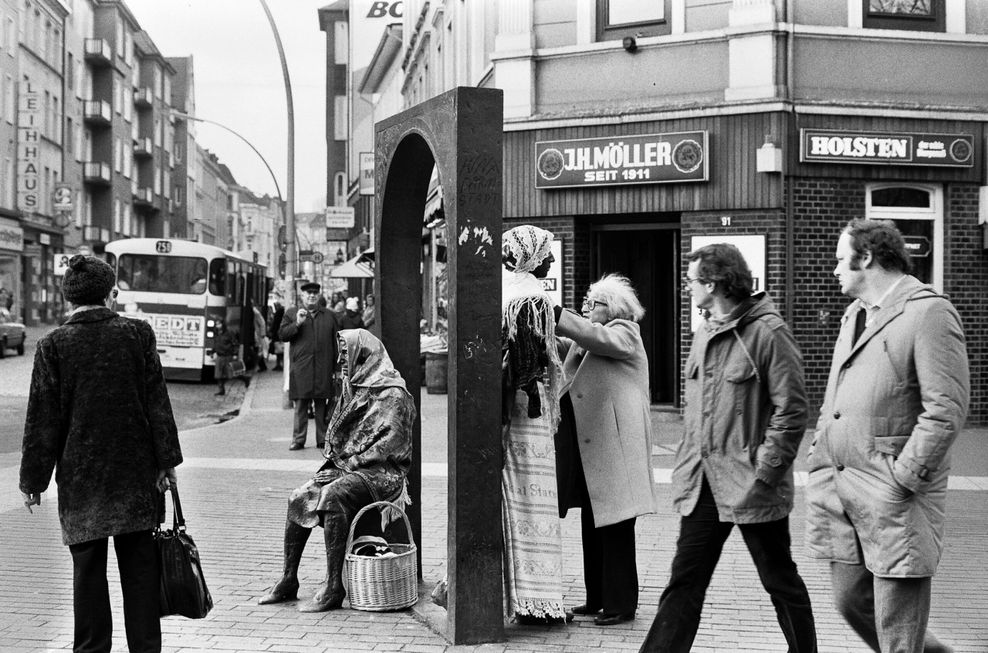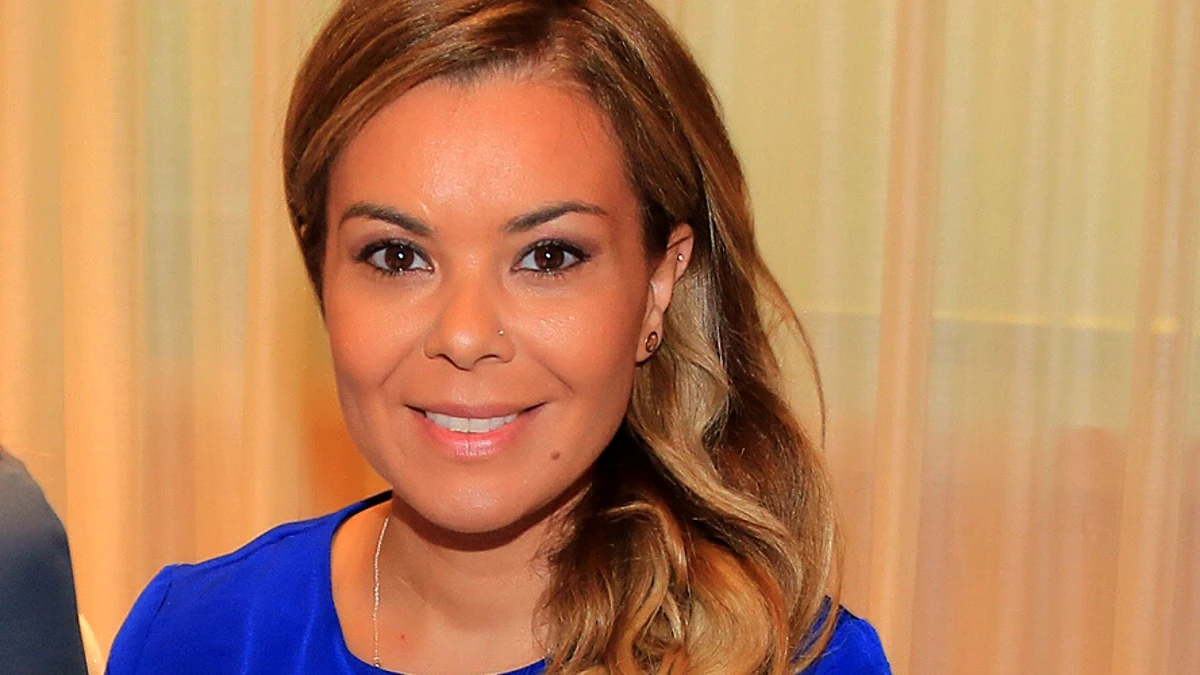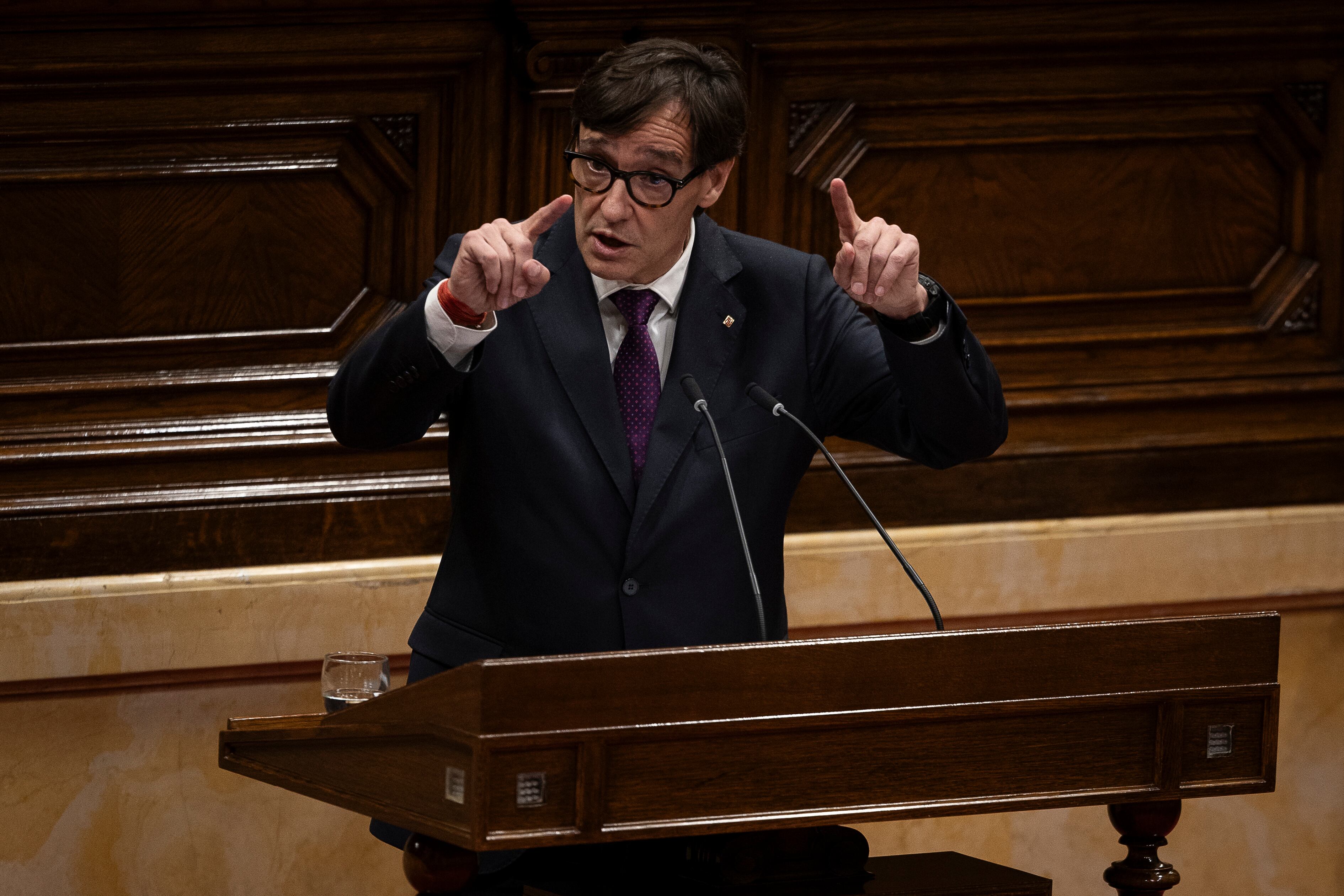Hidden up a wooded hill in the sprawling backyard of his suburban Los Angeles estate, Dijon “Mustard” McFarlane is on the tennis court, perfecting his forehand.
“I’m an extremist,” the 34-year-old producer explains as he warms up his top spin. “I play every day, sometimes two times a day.” The L.A.-born musician, who shot to prominence at 21 when he produced Tyga’s 2011 hit “Rack City,” beckons his coach to serve again. After some rallying, Mustard slices a ball that nearly hits the Billboard cameraman kneeling beneath him, trying to get a close-up shot. “Oh, sorry! Man, you’re brave for sitting there,” Mustard says.
“I play, too; it’s cool,” the photographer replies, unfazed.
“Aight, you’re one of us,” Mustard says with a grin, pointing at the man with his racket. For a second, it feels like the sportier version of a knighting ceremony.
He may still be polishing his tennis game, but after more than a decade of making hip-hop hits, Mustard scored an indisputable ace this year, reaching his highest career peak to date as the beat-maker behind Kendrick Lamar’s Billboard Hot 100 No. 1 “Not Like Us” — the biggest hit in Lamar’s spring beef with Drake. On the track, which cemented Lamar’s victory in the court of public opinion, the Pulitzer Prize winner is at his most venomous, using Mustard’s pop earworm of an instrumental as a Trojan horse for accusing Drake of being an Atlanta “colonizer” who steals sounds from local rappers and to resurface the serious allegations of Drake’s supposed predilection for underage girls.
But for such a hate-fueled anthem, “Not Like Us” also proved to be a uniting force for the world of West Coast hip-hop — unity by way of a common enemy. “When I was growing up, I watched 2Pac, ‘California Love,’ Dr. Dre, Snoop, the Death Row days,” says Mustard, who was born and raised in L.A.’s Crenshaw neighborhood. “It’s like being a part of that again, but in this day and age.”
The release of “Not Like Us” did plenty to galvanize the West Coast scene on its own, but Lamar further cemented its place in hip-hop history when he hosted The Pop Out — Ken & Friends, a Juneteenth concert at the L.A.-area Kia Forum. It was a show that was so sacred to L.A. natives that rival gangsters danced and sang to “Not Like Us” practically hand in hand onstage. To warm everyone up, Lamar enlisted Mustard to DJ a bevy of hits. But before literally popping out from under the stage, Mustard, a lifelong DJ typically confident in front of crowds, found himself on the verge of a panic attack. “I was nervous as s–t,” he confesses. “It just didn’t feel real.”
It was a full-circle moment for the producer, whose wide-ranging résumé — encompassing rap, R&B, EDM and pop — also includes hits like 2 Chainz’ “I’m Different,” Jeremih and YG’s “Don’t Tell ’Em,” Tinashe’s “2 On,” Ella Mai’s “Boo’d Up,” Lil Dicky and Chris Brown’s “Freaky Friday” and Rihanna’s “Needed Me.” “When I was a teenager, I’d write with YG in Inglewood [Calif.]. He used to live right across the street [from The Forum]. I made ‘Rack City’ across the street from there,” says Mustard, shaking his head in disbelief.
To start his set, Mustard walked up to his turntables, appearing calm and collected, even though he secretly wasn’t. After he fiddled with the knobs, the audio of a viral TikTok began: “The real takeaway from the Drake and Kendrick beef,” the voice of TikToker @lolaokola said, “is that it’s time for a DJ Mustard renaissance.” The crowd began to roar as the audio continued: “When every song on the radio was on a Mustard beat, we were a proper country. It was happier times. The closest we have ever been to true unity.”
After “Rack City” became a smash in 2012, the artist-producer then known as DJ Mustard seemed unstoppable. There was something about his simple formula of “a bassline, clap and it’s over… maybe an 808,” as he puts it, plus that catchy producer tag “Mustard on the beat, hoe!” that attracted pop purists and hip-hop heads alike, making his work go off both at the club and on the radio.
“Being a DJ, being in front of people and parties, I know what makes people move,” Mustard tells me between volleys with his coach. Every element of a Mustard track is done with clear intention to propel the song, not to clutter it. “I always used to tell Ty [Dolla $ign], ‘Man, you’re so musical, bro, but that s–t does not matter if they can’t hear what’s going on,’ ” Mustard recalls. “Simplicity is key for me and bridging the gap between that and the real musical s–t — but it still needs to be ratchet enough to be fun, too.”
He learned to use turntables from one of the best: his uncle and father figure, Tyrei “DJ Tee” Lacy, an L.A. DJ who frequently soundtracked parties for Dr. Dre, Snoop Dogg and other local legends. Later in the day, I follow Mustard to Lacy’s restaurant, the District by GS on Crenshaw Boulevard. “This is where they got into it in Boyz n the Hood!” exclaims Mustard, gesturing to the street in front of the restaurant.
As he walks through the staff entrance and the kitchen, he daps up each person, his diamond-encrusted chain with a Jesus Christ pendant swinging as he moves. He sits down in a corner booth, and Lacy comes to join him. Mustard orders the usual: fried catfish. “Mustard as a child is the same as Mustard as an adult,” Lacy says. “He always cared about his craft — always.”
When Mustard was growing up, Lacy would often bring him along to his DJ gigs. One time, when he brought his nephew to a party in the Pacific Palisades, he had an ulterior motive. “I actually had [intentionally] double-booked myself,” Lacy says. “ ‘Don’t leave me,’ Mustard said. But I was like, ‘Oh, you’ll be all right. Just play that and play this, and you got it.’ ” Three hours later, he got a call from Mustard: “Come get me! The party was so cracking, they busted all the windows!”
From then on, music always paid the bills for Mustard, and he became the hottest DJ at Dorsey High School in Crenshaw. Within a few years, he would be one of the hottest producers in the world.
Amid the height of his early success, Mustard remembers a conversation he had with another radio-defining producer: Timbaland. “We were talking about the music industry,” he recalls. “He’s just like, ‘I want you to know, man, you’re not going to always be hot.’ ” Even though Mustard says he never let his ego get out of hand during those first years of success — his mother made sure of that — the caveat felt unfathomable at the time.
By the end of 2014, just two years after the peak of “Rack City,” Mustard seemingly had it all: 23 Hot 100 producer credits already, a new mansion on a hill outside the city, beautiful jewelry, even his own line of DJ Mustard mustard bottles. (Actually, he regrets that last one: “That was not an ‘I made it’ moment; that was a dumbass moment.”) Still, Timbaland warned him, “There’s going to be a time when nobody picks up your [calls] — soak this all in, and when that time comes, save your money… don’t panic,’ ” Mustard recalls. “And then it became a thing. And I was just like, ‘Ah, this is what [Tim] was talking about,’ and thank God I was ready for it.”
As the decade wore on, his number of Hot 100-charting songs each year declined, from notching 14 in 2014 alone to between one and five each subsequent year. Still, a colder period for Mustard was better than what most musicians can ever dream of. And as time wore on, Mustard made the conscious choice to evolve. He focused on developing himself as not just a producer, but an artist in his own right. He started his own record label, 10 Summers, which launched the career of Grammy-winning R&B singer Ella Mai.
“I think with any producer, the ultimate goal is to break an artist. I believe that’s the hardest thing for a producer to do… I’m always for the challenge,” he says. It’s certainly something he has proved an aptitude for time and again, producing career-breakthrough tracks for artists like Mai, Tinashe, YG, Tyga and Roddy Ricch.
“You can’t be hot forever,” Mustard explains. “Even the best in the game… You have to reinvent yourself. And that’s what I did.”
Every hip-hop fan remembers where they were when “Not Like Us” dropped. Released the day after two other Lamar dis tracks, “6:16 in LA” and “Meet the Grahams,” no one saw it coming — not even the beat’s producers.
Mustard, for his part, was “on [my] way to a baby shower. Somebody sent me a message, and I was just like, ‘Oh, s–t,’ and then I hung up in their face, and I was just playing it over and over.” When he arrived at the baby shower, he could already hear the neighbors blasting it from over the fence.
Fellow “Not Like Us” beat-maker Sean Momberger was getting his car towed by AAA after a flat tire. “My friend texted me that Kendrick had dropped again,” he says. “I clicked on the link and heard our beat, and I was just shocked. I FaceTimed Mustard, and we were yelling and laughing.”
Mustard and Momberger were never in the studio with Lamar (or Sounwave, the song’s third credited producer and a longtime collaborator of the rapper) to make “Not Like Us.” The song started with Momberger sending Mustard some sample ideas and Mustard doing what he does best — “infectious” and “catchy” production with “a simplistic beauty driven by bouncy drums and West Coast undertone,” as Momberger describes it. But while the track stays true to the Mustard sound everyone knows, it also embodies how he has iterated it over the years to be fuller and more sample-driven.
Mustard texted it, along with about six other beats, to Lamar — who said nothing but reacted with a “heart.” Though he wasn’t in the room with Lamar this time, he had been in the studio with him before, years ago. Once, he says, Terrace Martin, a core musician on Lamar’s 2015 album, To Pimp a Butterfly, took him to one of that project’s sessions. “I remember seeing that s–t and being like, ‘Whoa, that’s a lot going on.’ With me and YG [Mustard’s most frequent collaborator], we didn’t have that many musicians around. That was my first time seeing s–t like that. Thundercat was there, Sounwave was there. Terrace was there… I knew [that album] was going to be some crazy s–t, but I didn’t know it would be like that.”
Though he couldn’t have predicted the impact To Pimp a Butterfly would have on culture, Mustard says he has a good intuition for hit records. “I don’t want to say I’m always right, but I’m pretty much on the money,” he notes. Mai agrees: “Mustard’s greatest strength is his ear.”
For all his success producing radio-ready singles, however, one-off collaborations don’t move Mustard like they used to. “I can do stuff like ‘Not Like Us’ every day,” he says. “I can do that with my eyes closed… In my next phase, I’m not doing singles,” he insists, though he does admit he would do “Not Like Us” again “100,000 times” without hesitation. “I’ll do [a single for an artist] if I can have the whole album or the majority of the album, but other than that, I don’t get anything out of that.”
It’s why he dropped his own album, Faith of a Mustard Seed, this summer, which features Ricch, Travis Scott (whose “Parking Lot” with Mustard went to No. 17 on the Hot R&B/Hip-Hop Songs chart), Ty Dolla $ign, Future, Young Thug and more hip-hop heavyweights. Mustard reckons the album (named after a suggestion by his late friend Nipsey Hussle) took him five years to perfect — the equivalent of a lifetime in popular music, especially hip-hop. During that time, rap went from being constantly atop the Hot 100 to weeks, months and even a whole year passing without a rap No. 1. Top players like Thug and Gunna went to jail; Nipsey, Young Dolph and Takeoff died; Ye went rogue. New faces like Yeat and 4batz popularized new styles; Afrobeats and reggaetón seeped into the American rap mainstream.
Still, Mustard believes Faith of a Mustard Seed warranted the wait. “There’s nothing on that album that I feel like in 10 years I’ll say, ‘Damn, I wish I did that better,’ ” he says. “I hope it teaches kids that you can take your time and do the right thing. You don’t have to rush it out. I think [the industry] today is just so fast-paced.”
Mustard hopes the perfectionism that drove both Faith of a Mustard Seed and “Not Like Us,” including Lamar’s own multifaceted bars, will encourage artists to “really rap now… I think now it’s opened the door for … the real rappers that love rap music and lyrics and the double, triple, quadruple entendres and all that s–t cool again.”
And he’s hoping — or rather, manifesting, sometime between waking up and hitting the tennis court — that this dedication to his craft will yield a Grammy next year. “I definitely speak it into existence every morning,” he says with a laugh. “The highest reward we can get as musicians is a Grammy. I know that people talk like it’s not a thing, but it actually is. It’s like Jayson Tatum right now saying, ‘I don’t want to win the NBA Finals.’ Like, if that’s the case, then go play at Venice Beach.”
Regardless of whether he takes home a trophy on Feb. 2, he knows he has something monumental to look forward to precisely a week later, when Lamar headlines the Super Bowl halftime show — where “Not Like Us” will no doubt get its biggest showcase yet. “Of course I’m going,” he says. “I’m going to go and be in a box and watch… I just can’t wait… I might shed a tear!”
Yet despite surreal moments like that, Mustard says his life is “still the same” as it always was. “I don’t take no for an answer. I’m persistent. Every day, I’m doing something that has to do with the journey of trying to get to where I’m trying to go. At this point, I don’t know how far I can go. I don’t think there’s a limit. I’ve always been like that. That’s how I got ‘Rack City’ — just waking up every day, making beats… and hoping.”
This story also appears in the Oct. 5, 2024, issue of Billboard.



























